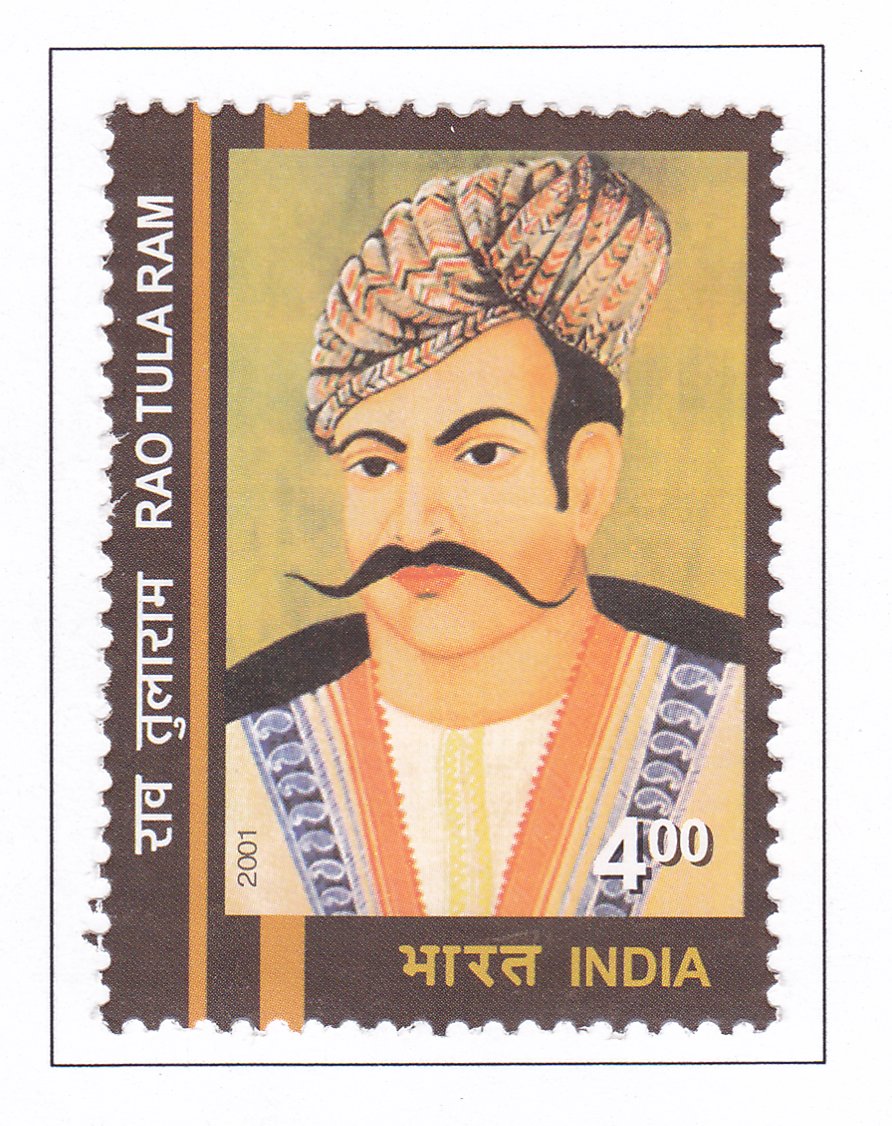Rao Tula Ram (1825-1863) of Rewari

Technical Data
| Date of Issue | September 23, 2001 |
|---|---|
| Denomination | Rs. 4 |
| Quantity | 400,000 |
| Perforation | comb 13 |
| Printer | Eagle Press Ltd. |
| Watermark | No Watermark |
| Colors | Multicolor |
| Catalog Codes |
Michel IN 1852 Stamp Number IN 1911 Yvert et Tellier IN 1617 Stanley Gibbons IN 2017 |
| Themes | Commemoration | Famous people | Kings | Men |
Table of Contents
Rao Tula Ram
Rao Tula Ram (1825-1863) was a prominent leader of the Revolt of 1857, known for his steadfast resistance against British colonial rule. Here’s an overview of his life and contributions:
Background and Early Life:
- Location: Rao Tula Ram was from Rewari, in present-day Haryana, India.
- Position: He was the traditional ruler of a small state in the Rewari pargana.
Role in the Revolt of 1857:
- Immediate Response: When the Revolt of 1857 began in Meerut, Tula Ram quickly mobilized in Rewari. He displaced British-aligned officials and proclaimed his own rule with the support of Emperor Bahadur Shah of Delhi, who was considered the symbolic head of the Indian rebellion.
- Administrative Reforms: Tula Ram implemented significant administrative changes to ensure the security and welfare of his subjects. He reformed the Revenue Department and organized a local militia composed of about 5,000 men, including artillery, infantry, cavalry, and police units.
- Popular Support: His effective governance and restoration of order earned him the support of the local populace, who saw him as a capable and powerful leader.
Conflict with the British:
- British Retaliation: As the British forces reasserted control over much of India, they turned their attention to Rewari. After the fall of Delhi, they engaged in a series of confrontations with Tula Ram’s forces.
- Battle of Narnaul: The decisive battle occurred in November 1857, where despite fierce resistance, the British emerged victorious. This defeat marked the end of significant rebel control in the Delhi division.
Post-Revolt Activities:
- Retreat and Diplomacy: Following the defeat at Narnaul, Tula Ram retreated to Rajasthan and sought to form alliances with Rajput princes to resist British rule. He also attempted to gain international support from countries like Afghanistan, Iran, and Russia.
- Final Years and Death: His efforts to rally support were largely unsuccessful, and his health deteriorated due to the arduous travels and varied climates. Tula Ram died in Kabul in September 1863.
Legacy:
- Commemoration: Rao Tula Ram is remembered for his bravery and relentless struggle against colonial rule. The Department of Posts honors his contributions with a commemorative postage stamp, recognizing him as a valiant patriot who fought tirelessly for India’s freedom.
